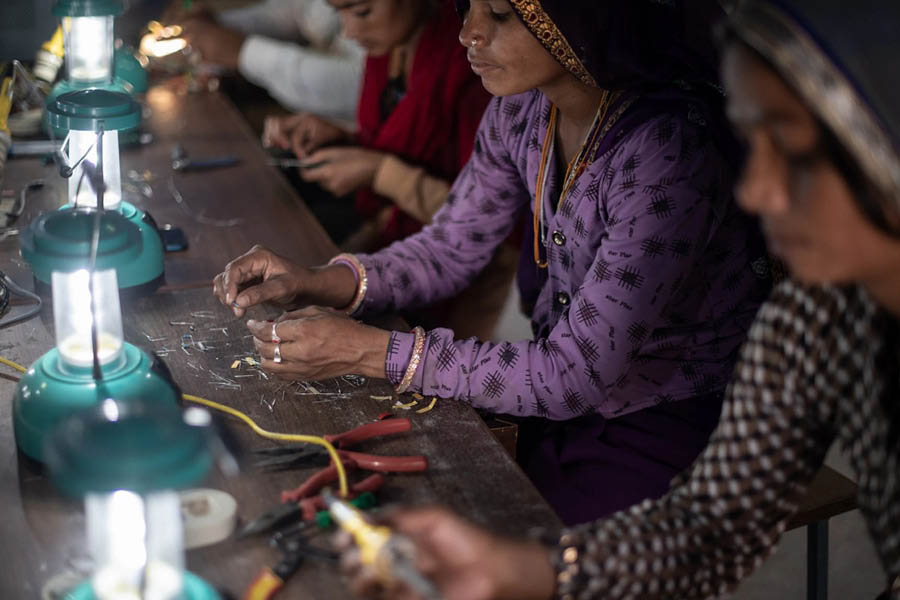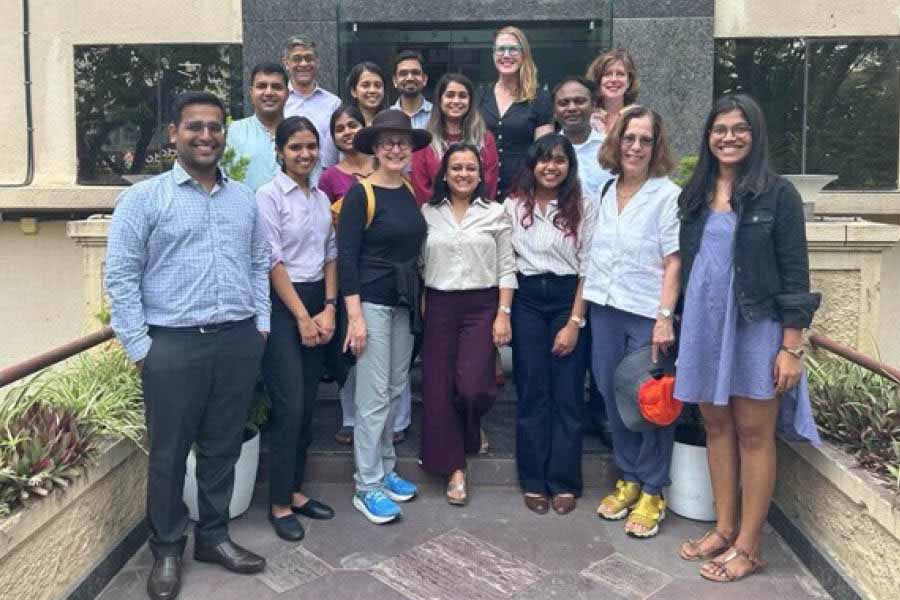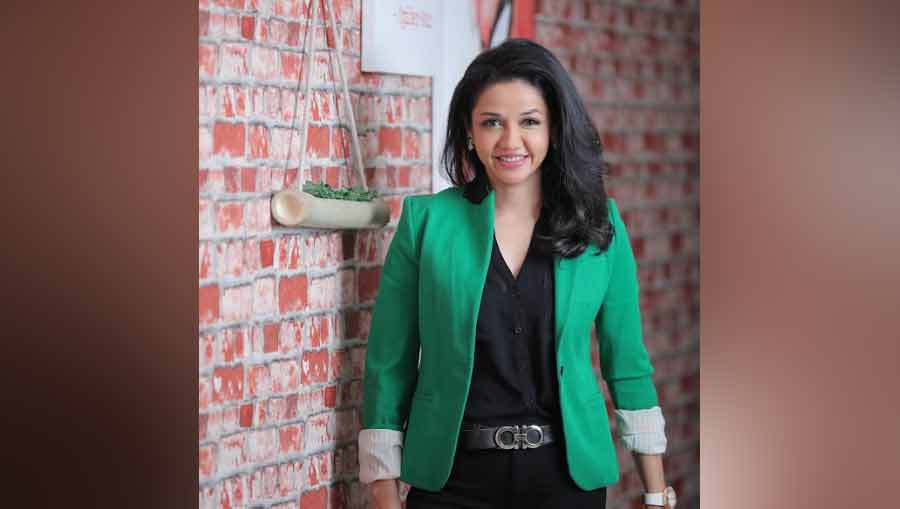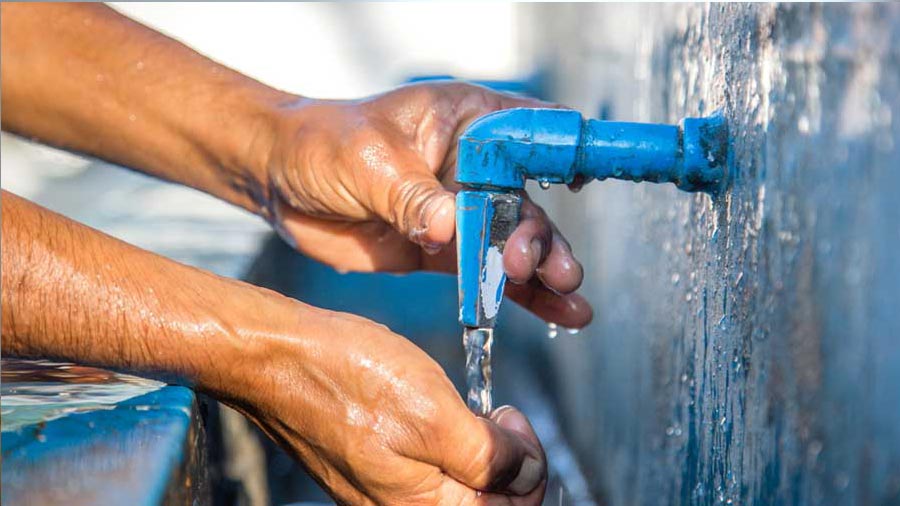More than seven decades after Independence, poverty remains India’s biggest challenge. According to NITI Aayog’s calculation of multidimensional poverty (which factors in monetary poverty, education and basic infrastructure services), more than 145 million people in India still live in poverty. That is more than the entire population of the UK and France put together. While there seem to be as many ways to fight poverty as there are explanations for its endurance, one proven way to reduce poverty is job creation. “Figuring out how to address poverty is our key mission and vision. In this context, dignified jobs are our best hope for a just society and a sustainable future,” believe A.B. Chakravarthy (referred to as Chakra by his team), India director; and Shruti Goel, director of impact and partnerships, at Upaya Social Ventures.
Founded in 2011, Upaya identifies itself as “an impact-first social investor that creates dignified jobs for people living in extreme poverty in India by building scalable businesses with investment and consulting support”. With 39 investments till date, Upaya has directly created more than 42,000 jobs and accelerated 66 businesses across sectors such as agriculture, waste management and rural manufacturing. In defining a dignified job, the Upaya motto is clear — working conditions must be “safe, stable and inclusive” and there must be scope for gradual improvement and transformation. “We’ve helped rag-pickers transition into sanitation workers and small founders grow into successful entrepreneurs. We feel a good job is one that creates a substantial income for an individual along with creating value for the enterprise,” explain Chakra and Shruti.
At Upaya, 46 per cent of job holders are women

Shruti Goel and A.B. Chakravarthy Upaya Social Ventures
Upaya’s USP is that “we go where other investors don’t”. “We find early-stage entrepreneurs in places and industries across India often considered too risky by other investors. We give them the tools they need to grow and scale. We mostly work in the informal sector and 46 per cent of our job holders are women. Through our work, we’ve managed to increase average household income per job holder by 57 per cent. Our overall investment so far is $1.58 million and our active portfolio currently supports 31,410 jobs across 27 companies,” outlines Shruti.
Another pioneering aspect of Upaya is what Chakra and Shruti term “recycled philanthropy”, which allows Upaya to generate $3 in income for job holders for every $1 of investment. “Instead of providing a single grant, we’ve brought together philanthropic funds to create a pool of recoverable grants, similar to a for-profit investment fund. This allows us to make an impact again and again through more investments,” say Chakra and Shruti.
Registered in Seattle, the majority of the Upaya team is based in Bengaluru. Upaya’s funders (all listed on their website) include Together Women Rise, Galloway Foundation, Delta Fund, The West Foundation, among others. “At Upaya, our portfolio companies are our partners. We work closely with entrepreneurs and their teams to ensure that their business is sustainable and can generate hundreds, if not thousands, of dignified jobs,” says Chakra.
Among the enterprises supported by Upaya is Bharat Krushi Seva, which is building a “tech-enabled, interconnected agricultural infrastructure in Maharashtra to equip farmers, agri-retailers and other agri-businesses with innovative tools, data-driven insights and traceability”. The platform, which started its partnership with Upaya in 2022, already has more than 15,000 farmers using its services. Also in 2022, Upaya joined hands with Haryana’s Pick My Work, which assists digital commerce and fintech companies to acquire customers through assisted sales in urban as well as rural areas of India. Another such organisation driving jobs and change is Greenwear, based out of Uttar Pradesh, which started receiving support from Upaya in 2020 in its goal to create “high-quality affordable textiles and garments that promote sustainable fashion”.
Learning from history and focussing on climate and gender

Transforming the lives of more women in India is high on the priority list for Upaya going forward TT Archives
To ensure a steadily growing ecosystem of businesses, Upaya makes use of its Dignified Jobs Accelerator. This programme identifies companies in the “missing middle” — described by Shruti as those “who are overlooked by microfinance institutions on the one hand and aren’t ready to accept very large capital in the regular commercial market on the other” — and helps them build a business model and narrative attractive to investors. The six-month accelerator provides access to Upaya’s business, finance and impact expertise as well as its constantly expanding investor network. Upaya is also a strategic partner for the Dignified Jobs Collaborative, which works towards “providing fair and predictable wages, a safe and healthy work environment, and a clear pathway out of poverty for those in developing economies”.
Going forward, Upaya wants to double down on job creation that takes into account climate justice and gender equality. “We’re thinking about how we can learn from history but also pivot to the needs of the present to focus on sectors that require addressing the issues of climate change and women’s transformation. We expect our portfolio size to double in the next few years, during which we also want to expand in terms of innovative capital instruments and provide responsive capital to entrepreneurs whenever needed. We’ve recently launched our textile waste management technical assistance facility (TAF) where we’re supporting waste management companies to set up business units solely for the purpose of managing textiles,” say Chakra and Shruti. For both of them, the future of Upaya and the solution to eradicating poverty in the country lies in the same question: “How do we continue to incentivise the creation of dignified jobs in India?”


